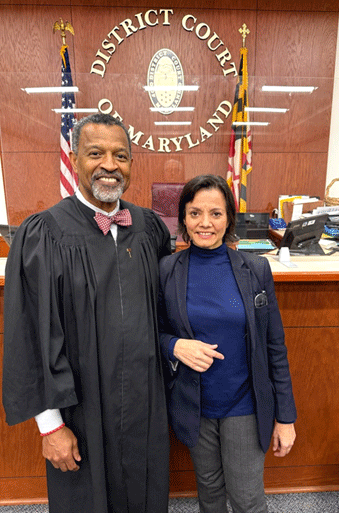May 7, 2025
187 Harry S. Truman Parkway
Annapolis, Maryland 21401
The Role of Interpreters in Treatment Courts: Ensuring Access to Justice
Access to justice is a fundamental principle of the legal system, and treatment courts play a critical role in providing specialized support for individuals struggling with substance use and mental health challenges. However, for participants who speak limited English, language barriers can create significant obstacles to understanding court proceedings and fully engaging in their treatment plans. Court interpreters help bridge this gap, ensuring all individuals have equal access to the resources and opportunities available through treatment courts.

Without proper interpretation, participants may struggle to comprehend court orders, treatment expectations, or available support services, ultimately affecting their ability to comply with program requirements and achieve successful outcomes. The presence of trained interpreters enhances procedural fairness and efficiency in treatment courts by reducing delays, ensuring accurate communication, enhancing participant compliance, improving engagement, providing for fairer outcomes, and ultimately, increasing trust in the justice system.
Maryland Problem-Solving Courts, such as the Howard County District Recovery Court, rely on interpreters to ensure that all participants can fully engage in their recovery process. One Spanish-speaking participant struggled to understand the expectations of the program, leading to missed appointments and compliance issues. Once an interpreter was provided, communication improved significantly—he began attending treatment consistently, met court requirements, and ultimately graduated from the program. Administrative Judge Wayne Brooks emphasized, “We must make court as accessible as possible to everyone, regardless of how they communicate.”
Maryland courts continue to explore ways to improve language access, including expanding interpreter services, increasing funding for language programs, and enhancing training for both court staff and interpreters. By prioritizing language access, treatment courts can better serve all individuals, ensuring a fair and effective justice system for everyone.
Please contact the Maryland Judiciary, Government Relations and Public Affairs Division, at [email protected] or 410-260-1488, for questions.
CONTACT:
Nicholas Cavey
Public Information Officer
[email protected]
Terri Charles
Deputy Public Information Officer
[email protected]
